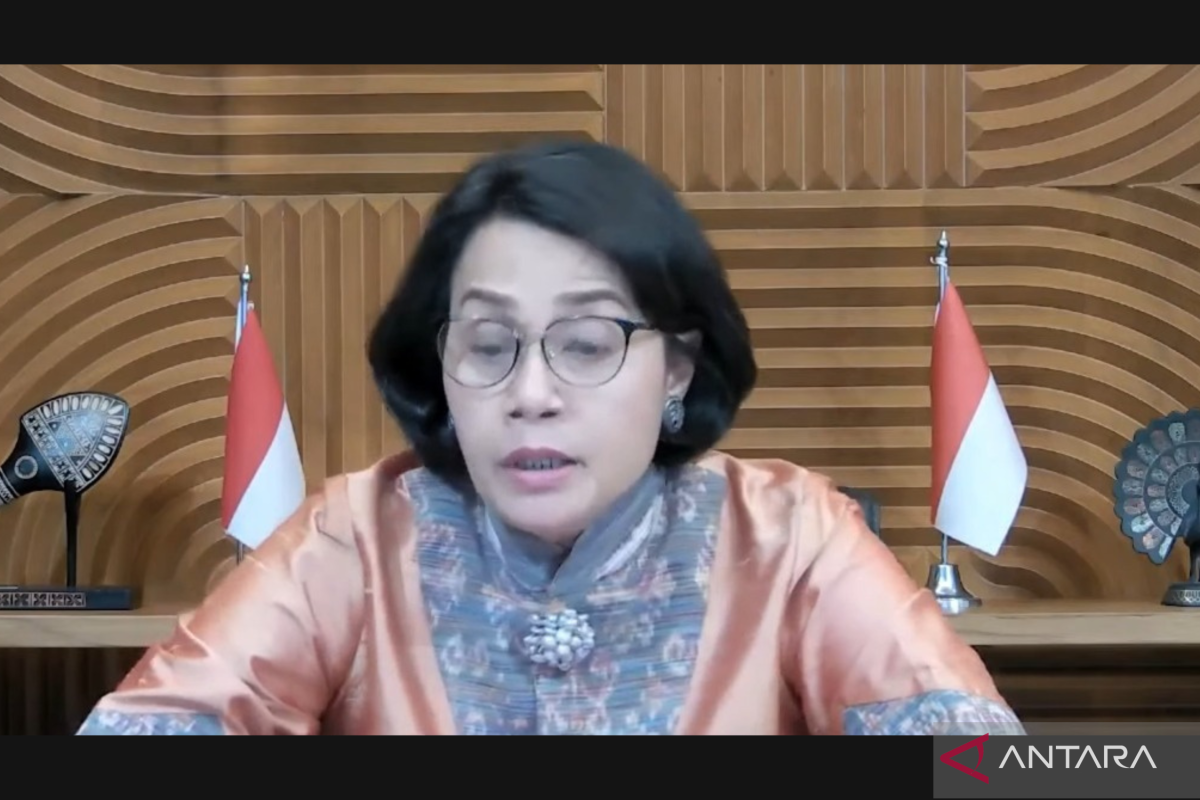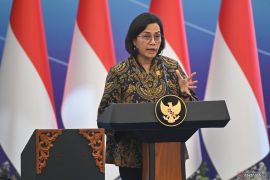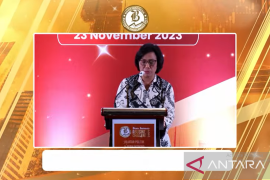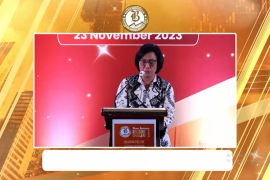"Indonesia's economy is still estimated to grow five percent. This is one of the highest as compared to other ASEAN and G20 countries," she remarked at a virtual press conference in Jakarta on Friday.
One of the indicators that makes a positive trend in Indonesia's economy is the expansive manufacturing sector activity, with a Manufacturing Purchasing Managers' Index (PMI) of 51.5 in October 2023, she noted.
Thus, Indonesia is included in the 30.4 percent of G20 and ASEAN-6 countries that recorded expansive Manufacturing PMI, apart from the Philippines, Singapore, India, the United States, Mexico, and Russia.
Meanwhile, 69.6 percent of countries that recorded a contraction in Manufacturing PMI are Germany, France, England, Italy, Japan, China, South Korea, Thailand, Malaysia, Vietnam, Canada, Brazil, South Africa, Turkey, and Australia.
"This means that their manufacturing sector is still experiencing ongoing pressure from the pandemic," she explained.
Mulyani remarked that the projection for Indonesia's economic growth issued by various international institutions in 2023 is five percent, thereby making the country rank third, with the best economic growth prospects in the ASEAN and G20 countries after India, at 6.3 percent, and the Philippines, at 5.3 percent.
This projection is far above the global economic growth estimates of 2.1 percent from the World Bank and three percent from the International Monetary Fund (IMF), she pointed out.
On the other hand, China's economy is estimated to grow five percent this year; Turkey and Malaysia, with four percent; Mexico, 3.2 percent; Brazil, 3.1 percent; Thailand, 2.7 percent; Spain, 2.5 percent; Russia, 2.2 percent; US, 2.1 percent; Japan, two percent; Australia, 1.8 percent; and South Korea, 1.4 percent.
However, she drew attention to some obstacles in Indonesia's economic growth, such as high inflation, weakening of the Chinese economy, commodity price volatility, and escalating global tensions owing to Israel's aggression on Palestine.
The other risks include geoeconomic fragmentation, shocks due to climate change, limited global policy space, and increased risk of debt difficulties.
"Even though global inflation has started to decline, it is still relatively high as compared to historical levels in the last decade," she stated.
Related news: National economy continuing to grow amid global uncertainty: expert
Related news: Indonesia's current trade conditions strong: deputy minister
Related news: Indonesia's hope of becoming a developed country by joining OECD
Translator: Agatha Olivia V, Resinta Sulistiyandari
Editor: Azis Kurmala
Copyright © ANTARA 2023












